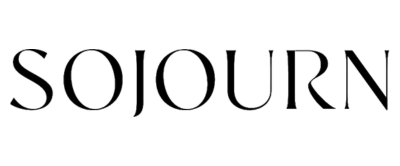
“Work culture and rising minds” – under this motto, the *Tomorrow Mind Festival* took place in Bregenz on October 16th. A festival that doesn't imitate classic conferences, but celebrates a new way of thinking: meaning instead of status, collaboration instead of power, future instead of past.
We were there – and even though we couldn't attend all the talks at once, we were deeply impressed by the sheer number of inspirational ideas, thought-provoking thoughts, and personalities. Here are a few impressions, knowing full well that they only show a small part of this fantastic day.
The new world of work: Culture as an attitude
Verena Eugster, initiator and host, summed it up perfectly in her opening speech:
"Performance is not a negative thing – we just need to fill it with meaning, joy and responsibility again."
The festival was aimed at executives, entrepreneurs, creatives, and people who see work as a place for personal growth. Instead of pure efficiency, the focus was on topics such as trust, mental strength, emotional intelligence, and spirituality. Because: A healthy corporate culture arises where people are allowed to grow – not just in terms of numbers, but also through experience.
Between performance and ease
Meritocracy – a term that polarizes. But Eugster reminded us that previous generations created value through achievement. The task of our time: to connect these values with a new awareness. A meritocratic culture of the future doesn't mean *doing more*, but rather *better understanding* why and for what purpose we do something.
Mental strength as a future skill
Neuropsychologist Marcus Täuber spoke about the power of thoughts:
"Thoughts are tools, not reality."
He demonstrated how we can recognize and manage emotional blocks through "metacognition"—that is, thinking about our thinking. This approach was complemented by the spiritual perspective of Father Martín, who described the balance between negative and positive as a source of inner peace. Spirituality, he argued, is not the opposite of modern science, but rather its deeper dimension.
Mental hygiene: The anti-blocking system
Coach Oliver Brünner presented an unusually simple yet powerful concept: the "Anti-Blockage System to Go." His method: don't fight blockages, but return them. Those who feel stuck internally visualize the person or situation that caused the blockage—and symbolically return it. An imaginary curtain is drawn back from the bottom right to the top left—and suddenly, lightness arises. A tool for "mental hygiene" that is surprisingly effective in everyday life.
Thinking about the future – from tomorrow's perspective
Trend researchers Matthias and Oona Horx reminded the audience that every trend also generates a counter-trend. They presented the Overtone Window model, which describes how societal opinions shift – and why understanding this dynamic is crucial for future viability.
Oona Horx also spoke about the "kindness economy" and our collective need for authenticity in times of digital overstimulation. Her re-gnosis – looking back from the future to the present – invites us to make decisions today that we will look back on with pride tomorrow.
Aksel Svindal: Success is teamwork
Former Norwegian ski racer Aksel Svindal shared his experiences from top-level sports:
“In the Norwegian team, we trusted each other one hundred percent – that was our secret to success.”

For him, mental strength is not a matter of chance, but the result of good preparation and collaboration. Problems are solved by breaking them down into smaller parts – and then acting step by step. This approach also counts in business: success is always the result of collective intelligence and trust.
The new information crisis – and the longing for meaning
Oona Horx recalled the three great information crises in human history: the invention of writing, the printing press, and the internet. Each brought progress – and confusion.
However, with the rapid development of artificial intelligence, we now face a new information crisis that presents us with even greater challenges. Discussions about truth, about right and wrong, about the power to interpret and responsibility are becoming more heated – and no longer affect only politics or the media, but also education and everyday culture.
One thought that concerns us personally is that our school systems urgently need to be considered in this context. How will young people learn to distinguish between reality and artifice, between fact and opinion? Education thus becomes one of the key issues for the future – and deserves significantly more attention than it currently receives.
If dopamine – our body's own messenger substance for optimism – is the chemical basis of hope, then the responsibility lies with us to shape the stories of tomorrow in such a way that they awaken hope and curiosity.
Conclusion: The future is created in the present.
The Tomorrow Mind Festival demonstrated that the future is not an abstract concept. It begins in our minds, in the way we lead, communicate, and breathe. Yes – even breathing was addressed: nasal breathing, diaphragmatic activation, consciously leaning back. Small gestures, big impact.
Anyone who wants to be inspired by how future thinking, science and spirituality can intertwine will find a fascinating format in the Tomorrow Mind Festival: It connects head, heart and attitude – and creates spaces for conversations that truly move things forward.
What we take with us
A day full of clever thoughts, honest encounters, and courageous perspectives.
Verena Eugster and Patrizia Zupan Eugster impress with great speakers, exciting interviews and an all-around successful event that makes you want more.
We will definitely be there again next year – and can only recommend it: Find out more here – experience for yourself what the future feels like when it is consciously shaped.
---
Inspiration for businesses
Those who want to integrate the festival's ideas into their daily lives could start with small but regular formats – such as short Tomorrow Mind Circles, in which teams pause together, reflect, and think ahead. Such moments create connection, foster creativity, and make the future tangible rather than abstract – as a lived attitude in everyday work.

